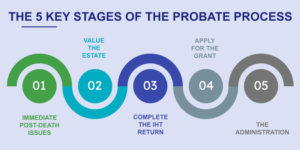Who Can Overrule A Family Court Judge?
Family court judges hold a significant amount of power over the lives of families going through divorce, child custody disputes, and other related legal issues. However, their authority is not absolute. There are processes and entities that can challenge, revise, or overturn a family court judge’s rulings under certain circumstances.
The Appeals Process
Perhaps the most common way a family court judge’s decision can be overturned is through the appeals process. This involves requesting a higher court review the judge’s ruling and determine if any errors or abuses of discretion occurred.
Filing An Appeal
To start an appeal, the dissatisfied party files a notice of appeal with the court that issued the ruling. This is typically done within 30 days of the final judgment or order, though deadlines vary by state. The appeals court will then schedule oral arguments where both sides present their case for or against the lower court’s decision.
Grounds For Appeal
There are several potential grounds for appeals in family court cases:
- Errors in applying the law – A judge misinterpreted or failed to properly apply relevant laws, precedents, and standards.
- Abuse of discretion – A judge’s ruling is deemed unreasonable, unfair, biased, or otherwise exceeds the scope of their discretionary powers.
- Procedural errors – Mistakes were made in following proper court procedures that negatively impacted the case or ruling.
- Factual errors – A judge made clearly erroneous factual findings that affected the judgment.
- New evidence – Substantial new evidence has been discovered that was not available at the original trial.
Appellate Court Decisions
The appeals court has three options in ruling on a family court appeal:
- Affirm the lower court’s ruling – The appeals judges find no reversible errors or abuse of discretion. The original ruling stands.
- Reverse the ruling – Errors are found that justify overturning the lower court’s judgment completely.
- Remand for further action – The case is sent back to the lower court with instructions to reconsider their ruling or hold further proceedings to address issues raised on appeal.
Review by A Higher Judge Within The Same Court
In some jurisdictions, it may be possible to request a “de novo” review of a family court judge’s decision by another judge in the same court system. This allows for a fresh look at the case without the need for a formal appeal.
How It Works
- A party files a request for a new trial or evidentiary hearing before a different judge.
- The new judge reviews evidence and legal arguments anew, essentially rehearing the case.
- The judge has the discretion to affirm the original ruling, modify it, reverse it entirely, or send it back to the first judge for reconsideration.
When Possible
Whether such intra-court review is allowed depends on each state or county’s local rules. There are sometimes restrictions on the types of orders or judgments that can be reviewed this way. It tends to be most common for reviewing interim or temporary orders.
Oversight By An Administrative Governing Body
Most state court systems have an administrative governing body tasked with providing oversight of judges and hearing complaints about judicial conduct. This body has the power to discipline judges for misconduct.
Judicial Conduct Commissions
Known by names like judicial conduct commission, judicial review board, or judicial qualifications commission, these agencies investigate claims of ethical violations against judges.
Typical Complaints
Complaints may allege conflicts of interest, bias, abuse of power, disregard of the law, or other misconduct. Family court litigants complain if they feel a judge acted unfairly, dishonestly, or outside the scope of their authority.
Disciplinary Actions
Depending on the severity of infractions found, disciplinary actions can include:
- Private reprimands
- Public censure
- Mandatory training
- Reassignment
- Suspension
- Removal from the bench
While this does not reverse a judge’s specific ruling, it holds them accountable for improprieties that may have affected their decisions.
Extraordinary Writs
In some instances where normal appeal options are inadequate, higher courts may exercise their discretionary powers to review a lower judge’s ruling through extraordinary writs.
Types of Extraordinary Writs
- Mandamus – Compels a court to perform a mandatory duty it is refusing to fulfill
- Prohibition – Prevents a court from exceeding its jurisdiction or abusing authority
- Certiorari – Allows higher court discretion to accept review of a lower court ruling
- Supersedeas – Suspends power of a lower court to enforce an order or judgment
When Used
These are reserved for special circumstances where normal appeals don’t provide an adequate remedy:
- A judge denies a party procedural due process rights.
- Irreparable harm would occur from enforcing an improper order.
- The dispute involves two courts conflicting over jurisdiction.
High Standard for Writs
Higher courts are cautious about interfering with lower judges’ authority and discretion through extraordinary writs. The petitioner must demonstrate a “clear abuse of discretion” with no adequate alternatives. Even then, the higher court still has discretion whether to accept the case or not.
Removal Through Impeachment
For the most severe cases of misconduct or abuse of power, family court judges – like all judges – can face removal from office through impeachment and conviction. This is an extremely rare occurrence.
House Impeaches
The state House of Representatives has the power to bring impeachment charges by a majority vote. This essentially acts as an indictment of the judge.
Senate Tries and Convicts
The state Senate then conducts a trial of the impeached judge. If a specified supermajority votes to convict, the judge is immediately removed from office.
Grounds for Removal
Impeachable offenses include corruption, serious ethical violations, maladministration, incompetence, or “conduct unbecoming” to the office. A judge may have exhibited a pattern of unfairness, disregard for the law, or abuse of power on multiple cases.
After Removal
In most states, the now removed judge is also disqualified from serving in a future judicial office. However, conviction does not void their previous rulings.
Conclusion
Family court judges are entrusted with wide discretion to make very impactful rulings on family legal matters. However, some oversight mechanisms exist to remedy and deter abuses of that power. The appeals process offers one of the primary ways to overturn particular judgments found to be erroneous. For more pervasive problems with a judge, judicial conduct bodies can impose discipline, while in the most egregious cases, the legislature can vote to impeach and remove a judge entirely. These checks on judicial authority aim to uphold the integrity of the courts and access to justice for litigants. When used appropriately, they help ensure that if one judge makes an unacceptable decision, alternatives exist for another judicial officer to correct it.
FAQs About Overruling Family Court Judges
Can a judge overrule another judge’s decision?
Generally, no – a judge handling a case after it has already been before another judge will give strong deference to the prior rulings under the doctrine of res judicata (matter already judged). However, the new judge may modify non-final orders or have discretion to rehear certain evidentiary issues, especially if fairness or new facts justify it.
How often are family court rulings appealed?
Only around 10-15% of family court cases see appeal. Most parties accept the judge’s final order. Of those appealed, higher courts affirm about 70-80% and modify or reverse only 20-30%, underscoring the deference to lower court discretion.
What is the standard of review for appeals of family court rulings?
Most family court conclusions (child custody, division of assets, etc) are reviewed under an “abuse of discretion” standard. The appeals court looks for errors of law, fact, or procedure that caused unreasonable, unfair, or biased decisions. Findings of fact are reversed only if “clearly erroneous.”
Can you request a new judge for your family court case?
In most states, you can request judicial reassignment or disqualification prior to significant proceedings if you believe the assigned judge is biased. However, you must prove specific grounds like conflict of interest, personal relationships, remarks reflecting prejudice, etc.
Who investigates complaints against family court judges?
Each state has a judicial conduct organization that accepts and reviews complaints alleging ethical, performance, or conduct issues against judges. If misconduct is found after investigation, they can discipline judges with actions ranging from private reprimand to removal from office.







